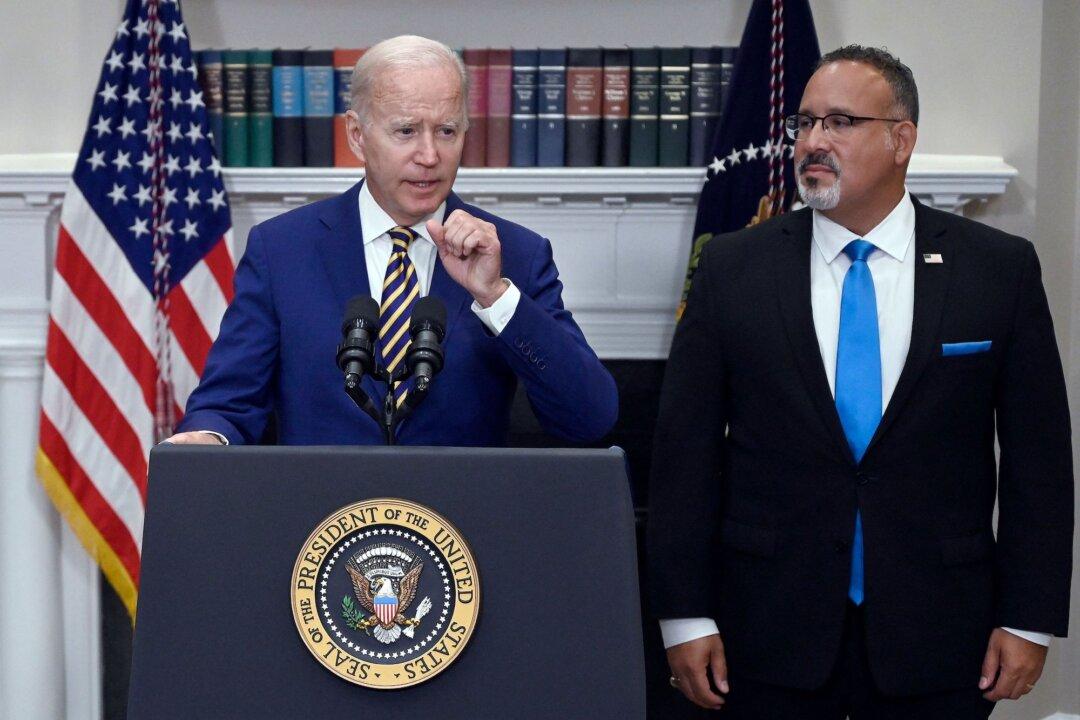A majority of Americans would oppose President Joe Biden’s plan to “forgive” billions of dollars of federal student loan debt if it led to higher taxes, according to a recent poll.
The survey (pdf), conducted by British data company YouGov on behalf of the libertarian Cato Institute, found that 64 percent of American adults said they are in favor of the federal government “forgiving” up to $10,000 in federal student loans for people earning less than $150,000 a year, or less than $300,000 per year for married couples.





